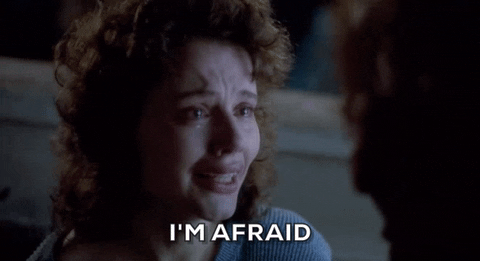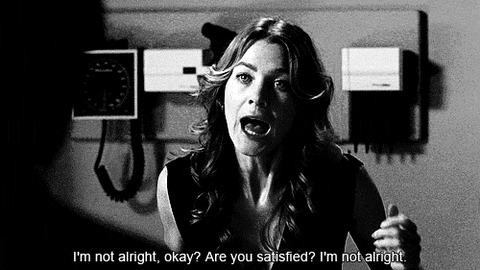
When I was younger, I was given chlamydia by someone I thought I could trust to be honest with me.
I was generally pretty careful with protection, but I was on the pill at the time so I thought it’d be okay. And I was in what I thought was an exclusive relationship. I didn’t realise for a very, very long time that I had it, because it didn’t show any symptoms.
Then I changed my birth control method. I went from taking the combination pill to getting an IUD (intra-uterine device), because I am prone to migraines and wanted to reduce my chances of bringing one on. Pretty normal, almost routine.
I’d been STI tested only a few months before getting the IUD and it had come up saying I was clear, so because I wasn’t sleeping with multiple partners (and thought my partner wasn’t either) I thought that I’d be fine to proceed. I believed that.

In hindsight, I wish I’d gotten tested again anyway. Because when you’ve got a sexually transmissible infection, having an IUD can increase your chances of getting pelvic inflammatory disease, or PID.
For those that don’t know, pelvic inflammatory disease is an infection that occurs in female reproductive organs, including the cervix and fallopian tubes.
My PID went undiagnosed for months. The irregular bleeding and cramps I was getting was passed off as my IUD settling, so I kept waiting longer and longer for it to pass. It didn’t pass. Then one morning I woke up to a literal flood.
I was scared and didn’t know what was going on with my body, so my mum took me to hospital.

They did a bunch of tests, and I was asked a bunch of questions about things like ectopic pregnancies and miscarriages. It wasn’t either, but even just the mention was terrifying enough.
Eventually the tests came back to say I had chlamydia, PID, and that my IUD was askew — a perfect storm to create the situation going on downstairs.
Most of the doctors at that hospital weren’t comfortable removing the IUD (something about not being appropriately trained for it, even though it’s really just a quick yank), but one was willing. I just wanted it gone so I consented to them taking it out on the spot.
One pull and out it came. They gave me some medication to stop the bleeding, and it worked reasonably quickly so they said I could go home.

But even though I wasn’t bleeding anymore, I still needed to address the PID that had resulted from being untreated for chlamydia for so long. Sure, I took the medication to treat it, and I’m completely clear of actual infection, but the damage may be done.
I was informed, quietly and calmly, that untreated PID could have affected my fertility levels. That getting pregnant might be harder for me in future than for most people. That I may have scarring on my fallopian tubes.
I never really wanted kids anyway, so I remember passing it off with a laugh and a comment that it was better me than someone who actually wanted sprogs. The nurse was taken aback I was so blasé about it. But about a week later, it hit me.
Even though I didn’t want kids to begin with, the fact that if I changed my mind, it may not be as easy and that this was because someone I trusted didn’t tell me about their other sexual partners, or get tested – or if they did, they didn’t tell me. To be blunt, it completely fucked with me.

After that, every time I started dating someone seriously I had to disclose it again (because what if they wanted kids and I may have trouble getting pregnant?), and that just dredged up the same anger again.
I’m fortunate now that my current partner doesn’t want kids either, but even if he did he’s incredibly supportive of the fact that if we ever changed our minds, it might be a little harder.
If there’s one takeaway for me, that I will continue to preach until I’m blue in the face, is that you should make getting tested part of your health routine even if you think you’re in the clear and that your relationship is exclusive.
Chlamydia and other STIs don’t always have obvious symptoms, so the only reliable method of detection is testing. There’s nothing shameful in it.
You think getting tested is embarrassing? Try openly bleeding in front of strangers as they try to figure out what’s going on inside you.
Trust me when I say that I’d much rather do a little test.



